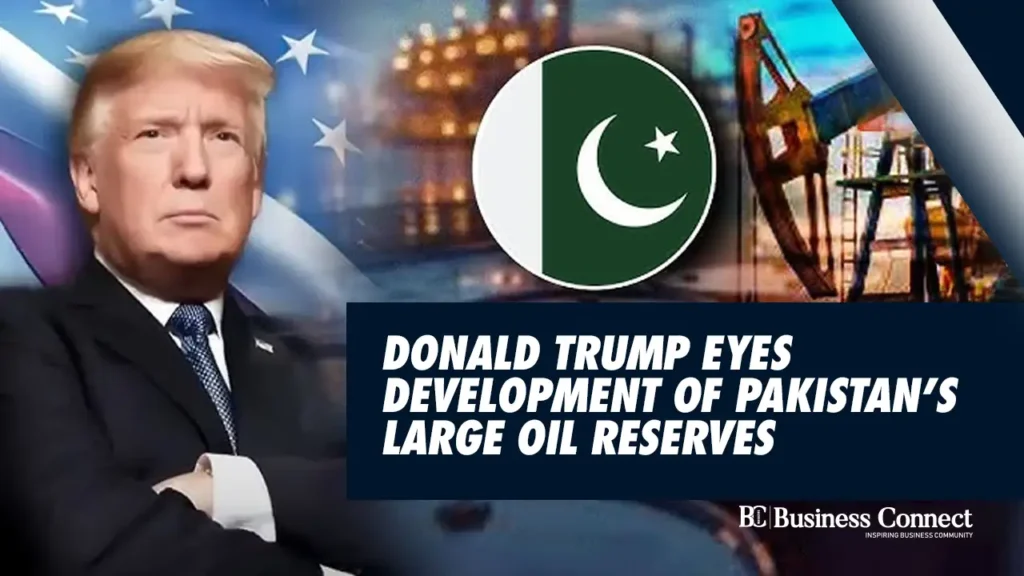On Thursday, US President Donald Trump unveiled a new deal with Pakistan in which Washington promised to help explore “massive oil reserves.” Trump also claimed in a tweet on his social media platform, Truth Social, that Pakistan would eventually supply oil to India.
Pakistan’s Oil Reserves on Trump’s Radar for Global Energy Expansion
“The United States and Pakistan have just reached an agreement wherein the two countries would collaborate to produce their enormous oil reserves. The selection of the oil company that will spearhead this partnership is now underway. Who knows, perhaps they will eventually sell oil to India! On Wednesday, Trump made a post.
The US Central Intelligence Agency believes that Pakistan possesses more than 332 million barrels of proven oil reserves. Islamabad now has the 52nd greatest oil reserves in the world, surpassing Trinidad & Tobago and trailing Turkey. On the same ranking, India comes in at number 23 with proven oil reserves of 4.5 billion barrels.
The US has been a relatively minor force in Pakistan’s economy thus far. The State Bank of Pakistan reports that in the first quarter of FY2025, foreign direct investment (FDI) flows into Pakistan from the United States totaled barely $29 million. In contrast, the majority of foreign direct investment (FDI) flows into Pakistan came from China, with investments totaling $404 million during the same period.
Trump’s declaration coincided with the signing of a trade agreement between the US and Pakistan.
On Wednesday, US Commerce Secretary Howard Lutnick and US Trade Representative Jamieson Greer met with Pakistan’s Finance Minister Muhammad Aurangzeb in Washington.
In the absence of a trade agreement, Pakistan was subject to a 29% tax on exports to the US beginning on August 1. It is currently unknown, nevertheless, what the new tariff rate for Pakistan that was determined as a result of the agreement is.
Days before an August 1 deadline for additional levies that New Delhi has been trying to avoid, Trump announced on Wednesday that India would be subject to a 25% tariff on all exports to the United States in addition to an undisclosed additional penalty for buying Russian energy.
The action, which some US officials saw as a bargaining ploy, may disadvantage India in comparison to Asian nations like Vietnam and Indonesia if the tariffs remain in place.
FAQ
Q1: What are the possible benefits of Donald Trump’s plan to develop Pakistan’s oil reserves?
Pakistan could receive significant foreign investment, boosting its economy.
It may generate new employment opportunities for the local population.
Increased oil production could reduce Pakistan’s reliance on energy imports.
The move may strengthen strategic ties between the U.S. and Pakistan.
Pakistan could gain a more prominent role in the global energy market.
Q2: What potential risks or disadvantages could Pakistan face?
There may be increased foreign control over Pakistan’s natural resources.
Environmental risks such as oil spills, pollution, and deforestation could arise.
Local communities might face displacement and related social issues.
Political instability and public protests could occur, especially if foreign firms earn disproportionate profits.
Without proper regulation, the risk of corruption may rise.
Q3: How could Trump’s plan work? What would be the process?
Survey and Assessment – U.S. companies would begin with a detailed survey of Pakistan’s oil reserves.
Contracts and Investment Deals – Bilateral agreements for energy development would be signed.
Infrastructure Development – Drilling, refinery setups, and transport networks would be established.
Oil Production and Export – Commercial extraction and possible exports to the U.S. or other markets.
Revenue Sharing – Profits would be shared between Pakistan and foreign entities.
Q4: Could this impact the China-Pakistan Economic Corridor (CPEC)?
Yes, U.S. involvement in Pakistan’s energy sector could challenge China’s influence through CPEC and alter regional geopolitics significantly.
Q5: What does this mean for India?
India would need to closely monitor Pakistan’s growing economic and strategic ties.
Greater U.S. involvement in Pakistan could pose a strategic challenge for India.
India must strengthen its energy security and refine its diplomatic strategies in response.
Add Business Connect magazine to your Google News feed



